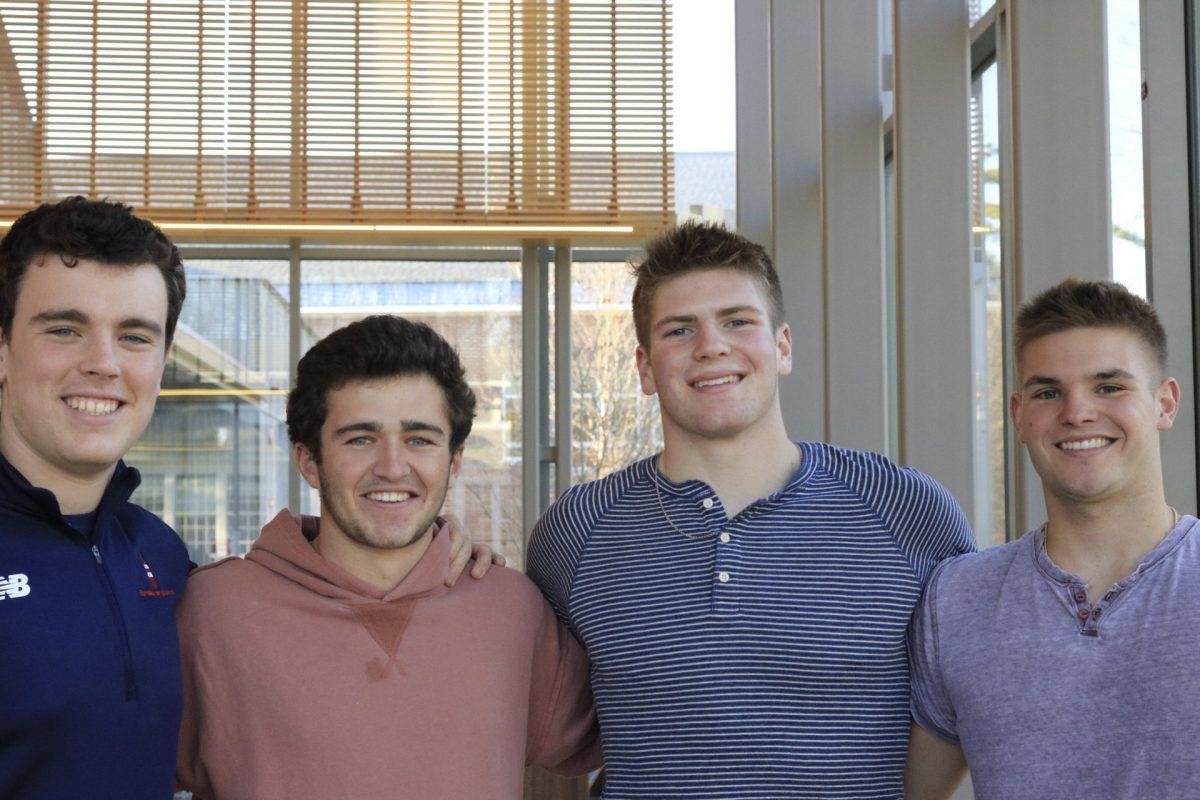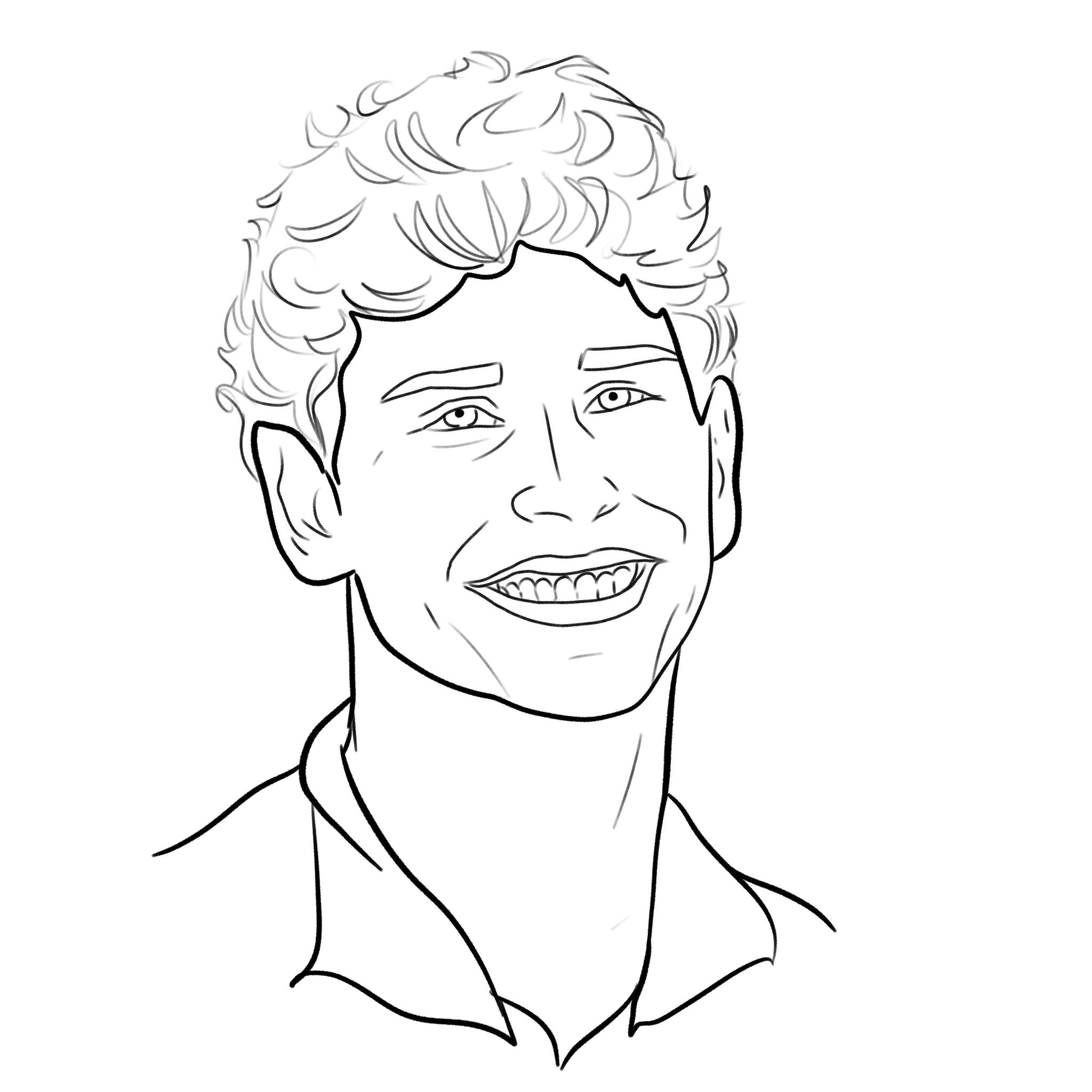
This fall, the Boys Varsity Football team finished with a 6-2 league record, placing them third in the ISL. This is the first time the football team has had a winning season in over five years. Class I Captains Will Chiasson, Colin Kenney, Zach O’Connell, and Ben Walsh led the team to Nobles’s first bowl game win in seven years–but what caused the team’s unprecedented success? Players point to two primary reasons: a new head coach and a drastic improvement in team culture.
The season began with players feeling the impact of both through a coach-led team barbecue. “During the barbecue, Coach Curran and all the assistant coaches made a concerted effort to make everyone feel like they were a part of the team,” Captain Ben Walsh (Class I) said.
Although their first game resulted in a difficult 6-0 home loss against Rivers, the team bounced back to go on a run of six consecutive wins. Head Coach Mike Curran attributed this ability to consistently churn out victories to a team in which different players could step up at different times. “It was a group effort. I think I could shout out any one of the kids who was on the team. It sort of ebbed and flowed week in and week out,” Curran said.
The team’s season culminated in two games against talented opponents: senior day against Milton and the bowl game against Kingswood Oxford. Despite a gritty defensive performance, Nobles was handed a 7-0 defeat by the Mustangs. However, this served to fuel the Dawgs for their final game of the season. After an incredible offensive performance, Nobles earned a 49-20 victory against the Kingswood Wyverns, a fitting end to a successful season. “The team put in a lot of work to get there. It was good to see the seniors get one last big win before they leave,” Grant Cowan (Class II) said of the climactic victory.
“I firmly believe that you stand on the shoulders of those who come before you. What I try to do is adopt the things that I’ve seen be successful with other great coaches around me.”
This work was spearheaded by Curran. “The practices this year […] were more intense. Coach Curran did more to help us as a football team,” Nate Pichardo (Class III) said. Curran’s mindset of hard work and improvement rubbed off on players. Moreover, players wanted to create a good impression. “There was the aspect of a new coach coming in and wanting to prove something to him,” Cowan said.
Curran himself was humble about his impact as a new head coach. “I firmly believe that you stand on the shoulders of those who come before you. What I try to do is adopt the things that I’ve seen be successful with other great coaches around me,” Curran said. He discussed how he learned what messages to deliver to athletes from fellow fall coaches, including Girls Varsity Field Hockey Coach Maura Sullivan and Boys Varsity Soccer Coach Steve Ginsberg. Describing his experience stepping into a new role, he echoed a similar message of learning and legacy. “I think there was certain pressure around it. But my goal from day one was I wanted to do [other teacher-coaches] proud and carry on their memory and their legacy,” Curran said.
In addition to bringing intensity and focus to the field, Curran also helped to foster conversations that led to bonding and improvement. “I believe at the end of the day that football is a vehicle for teaching a lot of other things about life, like how you learn to work with other people and how to communicate openly and effectively. I think that sense of transparency was a big part of what we focused on as both players and coaches, and I think that culture was pretty unique,” Curran said. In addition to making players want to play for each other, this dialogue also helped from a technical standpoint. “Being able to talk about when things went well and why they went well, and also be able to talk about when we made mistakes or things didn’t work out is crucial to success,” Curran said.
“I feel like our togetherness and how we bonded has had the biggest impact on our success.”
This transparency fostered by the coaches created a team culture in which everyone was comfortable. Every player attributed the team’s success to this brotherhood. “[Between this year and last,] people bought in more and gave more effort into the team because the coaching staff bought in more, and it helped players improve throughout practices,” Cowan said. The connection between players led to this increased buy-in, according to Pichardo. “I feel like our togetherness and how we bonded has had the biggest impact on our success,” he said.
Walsh also felt a huge change in culture between this year and his previous years on the team. “I would say that the biggest difference is that everyone feels like they’re a part of something bigger than themselves. Everyone’s a part of the team and everyone makes the team go,” Walsh said.
Jonah Bazinet (Class IV) is new to the team, but he said it didn’t feel that way. Like his teammates, he chalked up the team’s unprecedented success to culture. “I think the chemistry that we built through practices, through team dinners, it bonded us together really closely as a team. I think the team felt more like family rather than teammates. “So it wasn’t about playing for yourself, it was about playing for each other, and every snap you’re putting your body on the line for your teammates,” Bazinet said.
